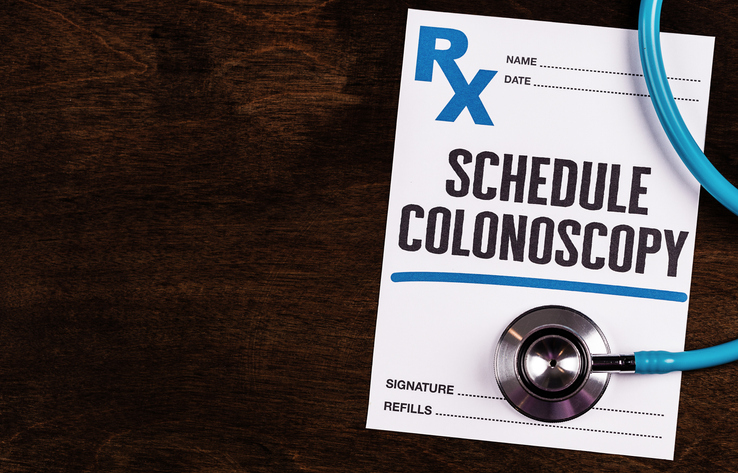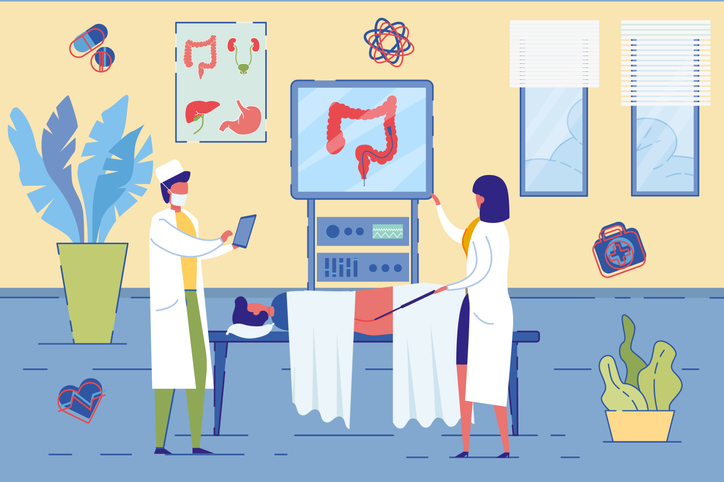When Should You Have Your Second Colonoscopy? Well It Depends

I had my first colonoscopy at 50, and then I recently had my second at 60.
It is usually recommended that persons like myself who have an average risk of colorectal cancer, should start getting colonoscopies at age 50. And then if all looks good, get one every 10 years.
(If you need a refresher on what exactly a colonoscopy is, click here).
On the other hand, recently more detailed guidelines came out from three gastroenterology subspecialty societies that tell people what to do after they have their first colonoscopy.
"Depending on what that first colonoscopy shows, it will tell us if you're a 10-year person or a three-year person," said Dr. John Birk, chief of UConn Health's Division of Gastroenterology, in this report discussing the guidelines.
"Now, family history can dictate your course no matter what the findings are, but these new guidelines bring an added nuance to it."

Generally speaking, there are some things to look out for (according to the new guideline recommendations). And, of course, there is a range (particularly if you have a family history of this cancer). For example, some people may be a “five-year person” or a “seven-year person,” but here is overall what you need to be mindful of:
- These recommendations are based on what the results of your first colonoscopy are such as what types of growths are discovered (if any), how many of these growths are found and how large they are.
- The colonoscopy will look for growths such as tubular adenomas (a type of polyp). “A polyp is a projection (growth) of tissue from the inner lining of the colon into the lumen (hollow center) of the colon. Different types of polyps look different under the microscope. Polyps are benign (non-cancerous) growths, but cancer can start in some types of polyps. These polyps can be thought of as pre-cancers, which is why it is important to have them removed,” according to the American Cancer Society.
- If a person has three or four tubular adenomas that measure less than 10 millimeters, the guidelines recommend to come back for a second colonoscopy in three to five years. If it were me, I would rather be safe than sorry and come back after three years (especially if there was a history of colorectal cancer in my family).
- If your first colonoscopy reveals one tubular adenoma that measures 10 millimeters or more, this is considered “advanced” (to be clear, not advanced cancer) and the recommendation is to return for another colonoscopy in three years.
- If no adenomas are found, you can come back in 10 years.
There are also other details to be mindful of, and every case varies.
For example, “If the colonoscopy turns up a growth known as a sessile serrated polyp (SSP), the recommendations are for an earlier follow-up colonoscopy. Less threatening is what's known as a hyperplastic polyp found in or near the rectum. If they're small enough—less than 10 millimeters—it would take more than 20 of these polyps to become worrisome."
Know if you fall into the increased or high risk group for colorectal cancer.
Some things that may increase your risk of developing colorectal cancer include a family history (as mentioned), being overweight or obese, not maintaining a physically active lifestyle, a diet high in red and/or processed meats, being a smoker, drinking alcohol excessively, having type 2 diabetes and having a history of inflammatory bowel disease such as ulcerative colitis or Crohn’s disease.
The good news is that many of these risk factors are controllable. For example, it is within your control to maintain a healthy lifestyle and reduce your risk of developing colorectal cancer by exercising regularly, eating healthily (fiber is key), not smoking, drinking in moderation (if at all) and, of course, being on top of knowing when you should have a colonoscopy.
Colorectal cancer is not just an "old person's disease."
According to a recent study conducted by the American Cancer Society, the rate at which people are diagnosed with colorectal cancer in the United States is dropping among people 65 and older but rising in younger age groups.
“In 2020, 12% of colorectal cancer cases will be diagnosed in people under 50 – about 18,000 cases. Rates have been increasing since the mid-1980s in adults ages 20-39 years and since the mid-1990s in adults ages 40-54 years, with younger age groups experiencing the steepest increase,” the American Cancer Society reports.
As I’ve discussed before, this may have to do with America’s obesity epidemic (which plagues so many young people today).
Women may need to be especially mindful.
“Researchers have found that colon cancer tumor cells produce energy for growth differently in women and men, and that this difference is associated with a more aggressive form of tumor growth with a higher incidence in women,” according to a recent report from Yale University.
“Women have a lower rate of colon cancer than men but a higher prevalence of right-sided colon cancer, a deadlier form of the cancer that is associated with a 20% increased risk of death compared with cancer of the left side.”
This is yet another reason to stay on top of colonoscopies, know what may put you at an increased risk and maintain a healthy lifestyle.
Colorectal cancer is the third most common cancer diagnosed in both men and women in the United States. But if we are proactive, I am confident that we can change this.
(To read additional pH Labs blogs about colorectal cancer, click here).
Enjoy your healthy life!
The pH professional health care team includes recognized experts from a variety of health care and related disciplines, including physicians, attorneys, nutritionists, nurses and certified fitness instructors. This team also includes the members of the pH Medical Advisory Board, which constantly monitors all pH programs, products and services. To learn more about the pH Medical Advisory Board, click here.







